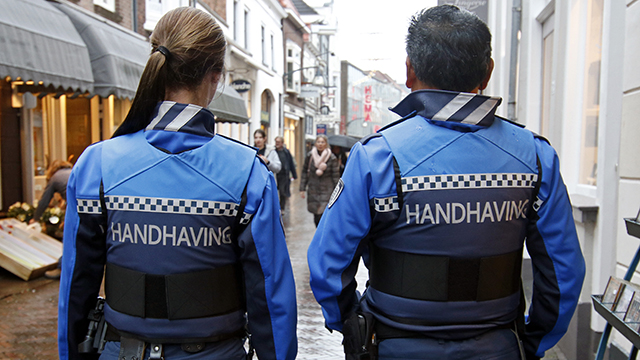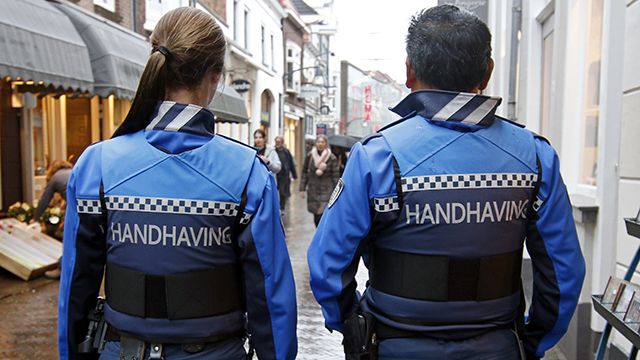
News
In the Spotlights: The Special Investigating Officer
Every month PrioCom puts a profession in the spotlight and explains how mission-critical communication contributes to the safety of employees and efficiency in business operations.
This month, we put the Special Investigating Officer in the spotlight.
What does a special investigating officer do?
Special Investigating Officers check whether people keep to the rules and do not commit offences. For example, parking in the wrong place or violating environmental regulations. Special Investigating Officers can, for example, stop suspects and issue fines. What a Special Investigating Officer is allowed to do is described in the Investigative Powers Act. This certificate differs per Special Investigating Officer. A Special Investigating Officer is often specialised in one part of the law.
There are 6 areas in which a Special Investigating Officer can work:
- Public area: dealing with nuisances and minor annoyances that affect the quality of life in the public area.
- Environment, welfare and infrastructure: nature and environment, labour inspection, food & goods inspections, animal welfare, public health, physical living environment (such as buildings, parks, clean air, rivers, forests) and infrastructure.
- Education: enforcement of the Compulsory Education Act and other related laws and regulations.
- Public transport: detecting criminal offences in the public transport domain.
- Work, Income and Care: criminal enforcement in the field of work, income, taxes and social affairs.
- Generic Investigation: residual category of Special Investigating Officers with, in most cases, general investigative powers, such as tax authorities and customs.
The function of Special Investigating Officer requires that the official can communicate well, is not afraid to address people and, above all, can act in a de-escalating way. The person must also have a high degree of integrity, since they have powers of investigation and violence. The Special Investigating Officer must also have knowledge of criminal (procedural) law and constitutional law, supplemented by specific training in the field in which the Special Investigating Officer operates. The exams are repeated regularly in order to (continue to) guarantee the Special Investigating Officers competence requirements.
Much is therefore asked of and demanded from the official in his/her daily work. These activities are also often accompanied by aggression, because the public is addressed on “the rules” with the possible drawing up of an official report (popularly called a fine for breaking the rules).
The Special Investigating Officer must therefore also be able to count on colleagues who can assist in the event of the situation escalating. A Special Investigating Officer will often act to de-escalate the situation, but this cannot always be prevented.
The resources that a Special Investigating Officer has at his disposal in the performance of his duties differ depending on the area in which the Special Investigating Officer operates. These may be handcuffs, a truncheon, pepper spray or even a firearm. All Special Investigating Officers are equipped with communication tools to be able to communicate with colleagues or the (central) control room. This ranges from a telephone to a walkie-talkie.
A Special Investigating Officer must always be able to rely on guaranteed (voice) communication. And in case of an emergency a Special Investigating Officer only needs to press the “emergency button” to be directly connected with the (central) control room. The (central) control room can also be equipped with a professional control room application to manage the communication and deployment of the Special Investigating Officers. Of course, the current positions of the public prosecutors are available.
PrioCom has delivered mission-critical communication tools to various public prosecutors in different domains via its Business Partners, in the form of smart phones with group communication (Push-to-Talk) and emergency button facility.
PrioCom realised this by reserving capacity on the T-Mobile 4G network especially for Special Investigating Officer. This capacity is not accessible for non-critical users.
Communication and Security go hand in hand and PrioCom has some important rules of thumb, included in a compass with nine (9) certainties.
Click on our link to read the full version of the nine certainties of the PrioCom compass.
PrioCom services are available at selected business partners.


